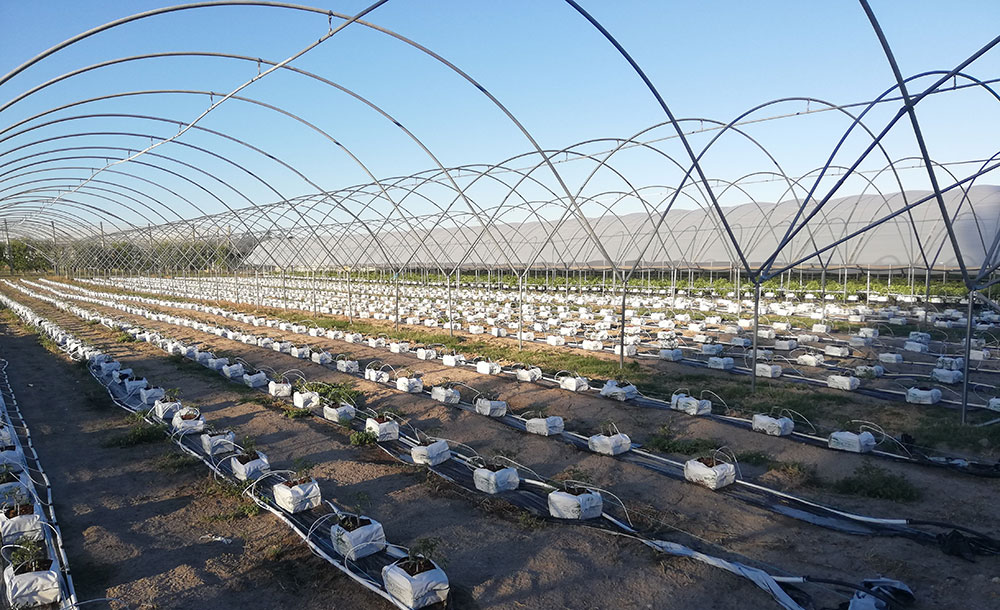
Top Reasons why irrigation measurements and recording data help farm profitability
It is often said that ‘you can’t manage what you don’t measure’. This principle can be applied to a variety of areas within a business.
One important focus area to monitor on a farm is irrigation. This is a core part of many businesses, as it is an essential service and can be a large portion of energy consumption.
Whether you want to start tracking your irrigation or want to improve on your current recording method; this article will outline the importance of these measurements, as well as providing tips to improve your monitoring techniques!
-
Why Keep Records of Irrigation?
Irrigation records are useful for several energy cost-related areas. This includes, but is not limited to, assessments for pump upgrades, solar sizing, solar load shifting, irrigation scheduling optimisation, and energy tariff reviews. It is particularly helpful for reviewing how irrigation changes seasonally, as well as the impacts of rainfall and drought.
Examples of the applications for historical irrigation records are given below:
- Irrigation schedules are vital for an energy auditor to calculate the energy requirements for your plots. This is needed when determining a new pump to provide the required irrigation at a lower energy cost. The more detailed these irrigation records are, the better the assessor is able to match your usage to the most optimal upgrade.
- If you would like to convert the majority of your pumping energy to solar power, knowing your pumping schedule will make sure your solar system is sized correctly!
- Load shifting is a method of reviewing the energy load throughout the day and changing the timing of processes and equipment (where possible). This is a strategy that can be employed to better fit a solar generation profile or to move the load into off-peak/cheaper rate periods.
- Keeping accurate irrigation records is particularly helpful when plots are added or removed. A good history of irrigation schedules will make it easy to plan the best way to adjust for the plot changes.
- Having a real record of when and how long your pumps are running will allow you, or an assessor, to calculate an accurate prediction of tariff costs on new or existing tariffs. This is particularly helpful for tariffs with peak/off-peak/other time-based rates and where a change is required. Having records of how you actually used your pumps could be the difference between a cost increase and a cost decrease when evaluating your bills!
- With new Ergon tariffs introduced in Queensland in 2021, certain tariff consumption thresholds are also relevant. Understanding the impact of rainfall and what is ‘normal’ will be key to understanding long term potential energy tariff impacts over the next 10 years
For more detailed information on Ergon Energy tariff changes, see our other technical article on Ergon Tariff 50.
-
Level of Detail and Record Intervals
Generally speaking, the more detailed the irrigation records are, the more accurate the further assessments will be. However, keeping detailed records can be time-consuming and may be overwhelming to adopt into the standard operations of the business.
Irrigation schedules can be as detailed or as simple as your needs dictate, though any amount of data collection is better than no records at all!
As a minimum, you should record the plot(s) being irrigated and the start time and duration of irrigation year round. If you are able to, recording pressures and flow rates weekly as a benchmarking exercise will also help you keep an eye on things.
As for record intervals relating to planned upgrades – solar assessments, load shifting, and irrigation optimisation are more accurate when daily records are taken. Other processes can generally be assessed with weekly or monthly data.
Your irrigation records should be tailored to suit how you irrigate! If your schedule remains fairly constant with most changes occurring seasonally, a simpler record should be sufficient. While more detail should be applied where irrigation, or weather conditions, vary a lot.
-
Preventing the Loss of Your Valuable Data is Important!
If you are able to, working digitally can greatly assist in preventing loss of data. This could mean using a smartphone or tablet to input data. If this is not possible, from lack of hardware or phone signal, entering data into a spreadsheet at the end of a day/week/month (depending on what level of accuracy you have chosen to record) will help with saving this data. Otherwise, a good filing system for paper schedules will ensure the data is available and easy to find when required.
Conclusion
If you can measure it, you can manage and improve it! Through load shifting, tariff analysis, and pump engineering you may be surprised by the potential savings!